
🌟New paper #openaccess. I map two-dimensional normalisation strategies of anti-establishment parties 2010-2019 and show how this rhetoric played into their broader electoral appeal @JournalPolitics @GSI_Muenchen @ExtremandDem @PopulismTeam journals.sagepub.com/doi/full/10.11… 1/🧵 

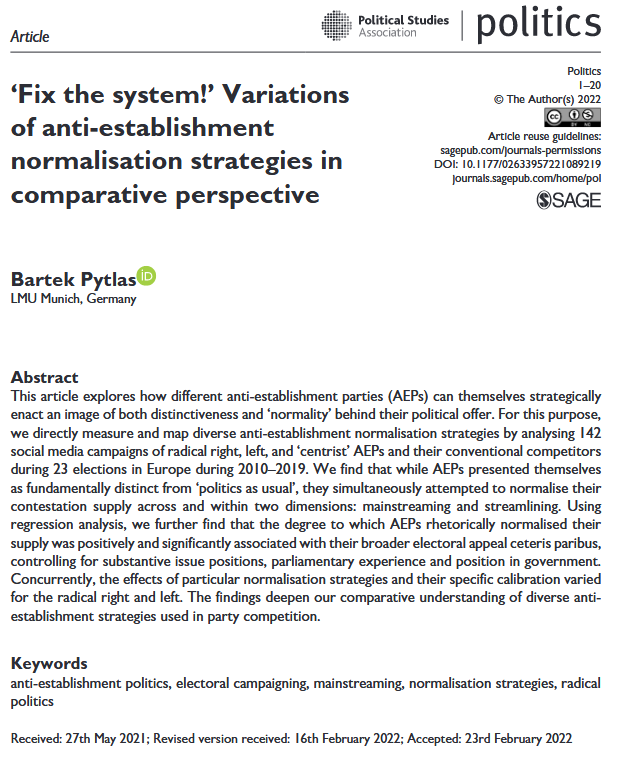

I argue and show that anti-establishment parties (AEPs) can actively navigate an image of both distinctiveness and ‘normality’ behind their substantive positions, and profit from their rhetorical strategies in terms of increased electoral performance, ceteris paribus 2/ 

I map rhetorical normalisation on 2 dimensions: mainstreaming and streamlining. Mainstreaming is used to enact broader AEP legitimacy as a ‘corrective’ to the practice of mainstream principles. AEPs use streamlining to enact broader credibility as respectable ‘counter elites’ 3/ 

I measure these rhetorical strategies directly in 142 social media campaigns by radical right, left and ‘centrist’ AEPs + conventional competitors during 23 elections across Europe (🇦🇹🇨🇿🇫🇷🇩🇪🇮🇹🇵🇱🇸🇰🇪🇸) 2010-2019. The dataset is released #openaccess here: 4/ osf.io/vfqkc/
I find: AEPs combine diverse rhetorical strategies, navigating both dimensions. Most don't just claim to be new niche actors able to 'smash the system', but often operate closer to normal politics. Many of them polarize conflicts as 'true elites' viable to 'fix the system'. 5/ 
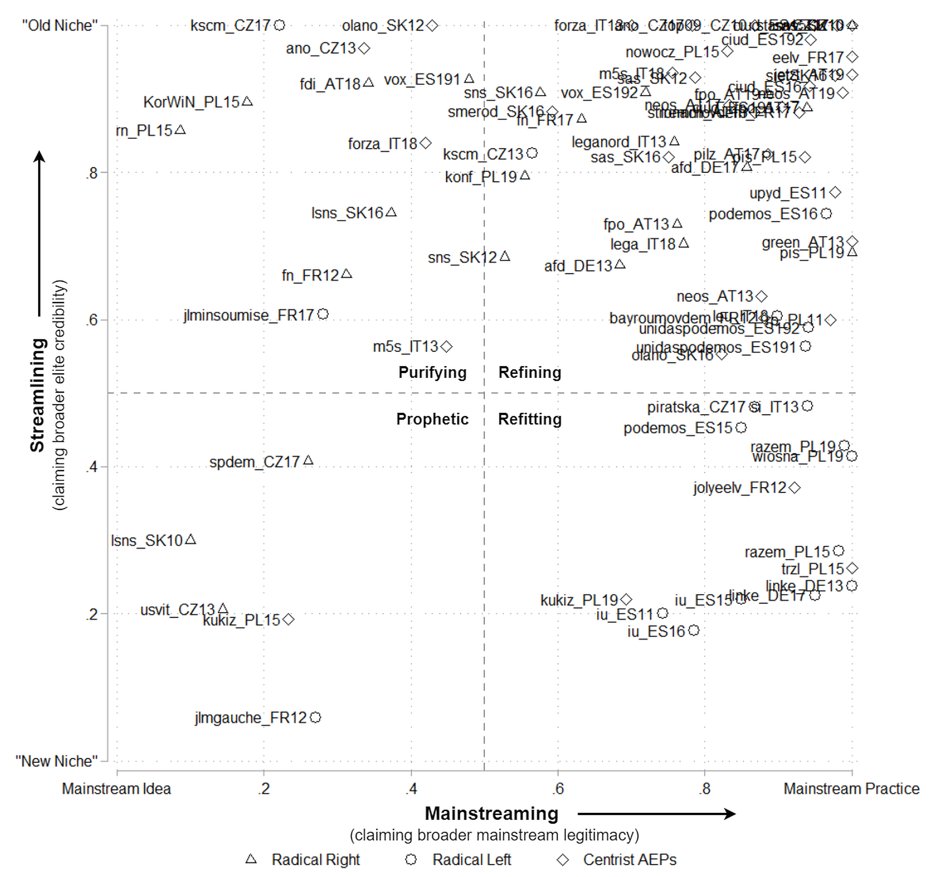
Over time, we observe shifts we would miss had we looked only at party positions. Yet, contrasting rhetoric with substantive ideas remains vital. Normalisation rhetoric didn't correlate with substantive moderation of party positions and differed for radical right and left. 6/ 
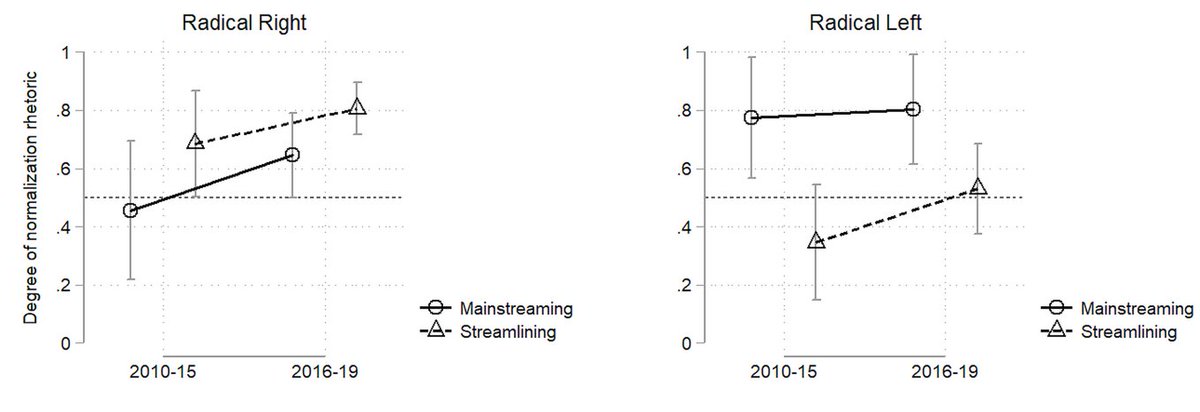
Normalization rhetoric played into broader electoral appeal of AEPs ceteris paribus. Of course, pursuing normalization strategies is not sufficient or automatic for stronger AEP performance. But we need to account more for the role of persuasive rhetoric behind party positions 7/ 
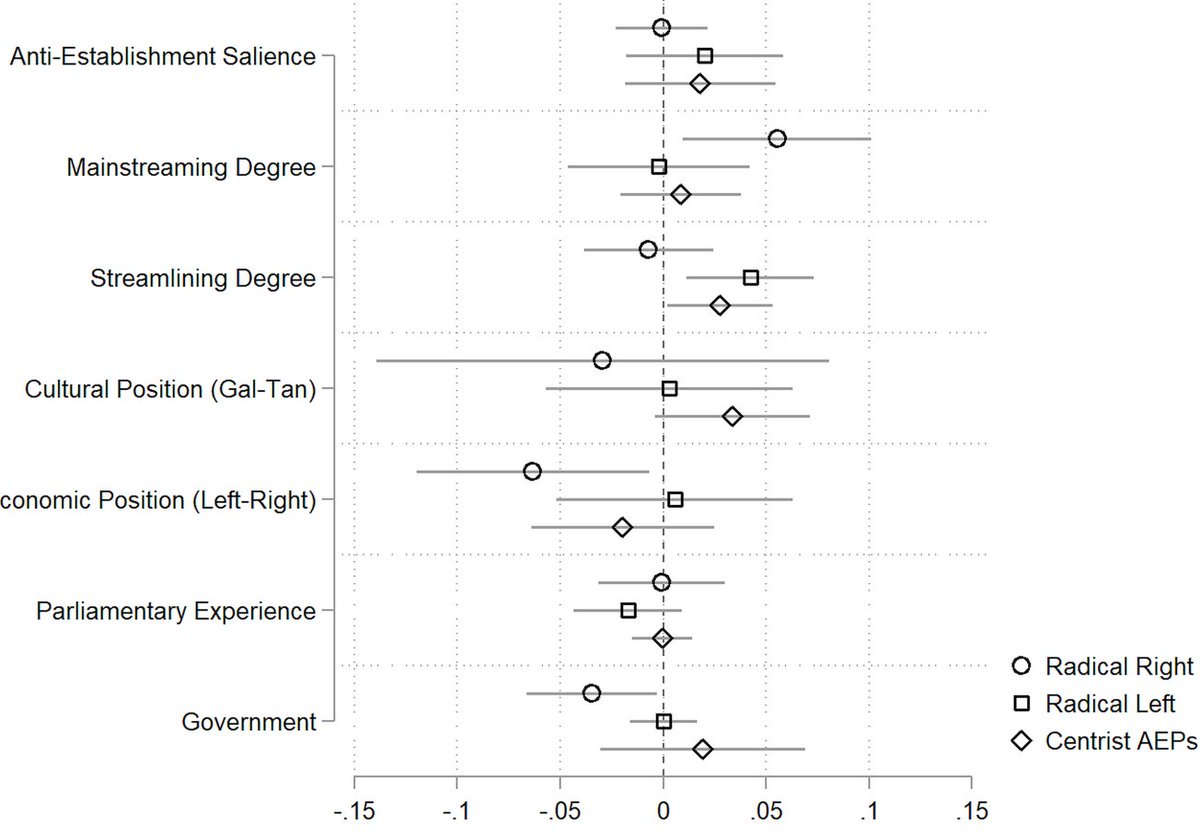
Note: these effects are not linear. AEPs rely on blurring to avoid appearing too far or too close to normal politics. Exception: unlike with streamlining, radical right parties profited most the more they could depict nativism as compatible with already valid mainstream values 8/ 
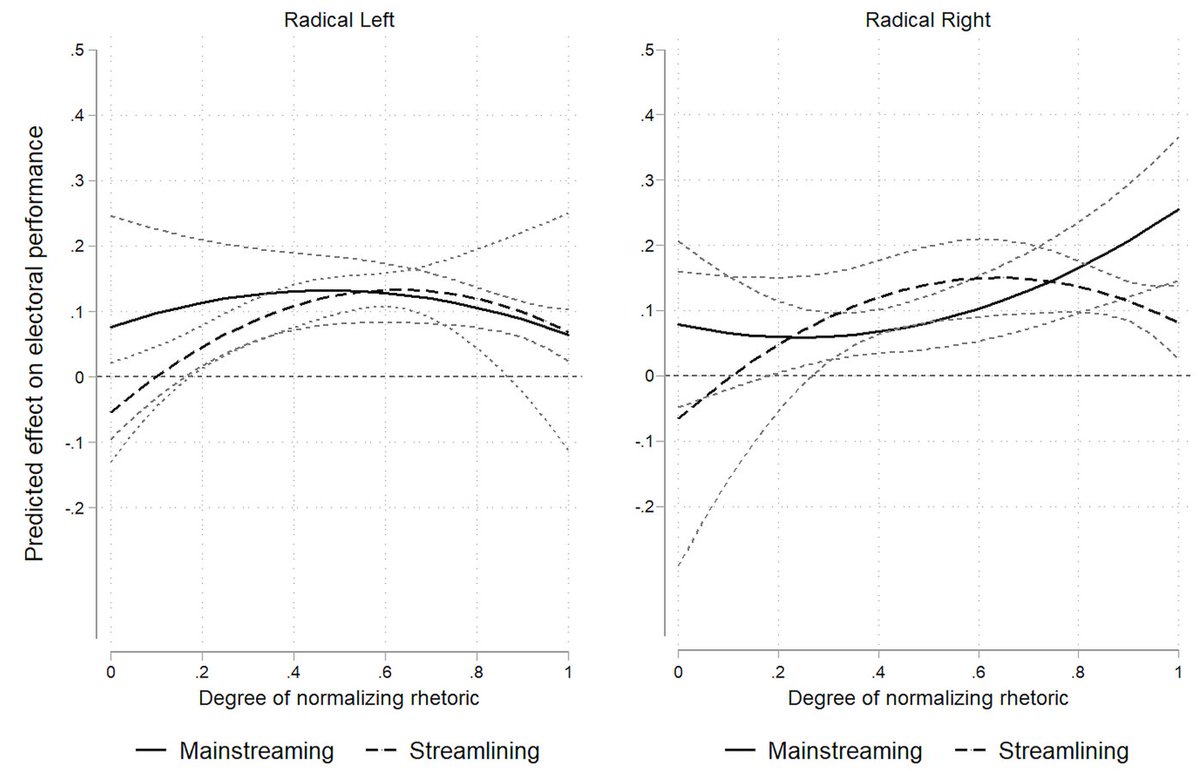
Thus, persuasive rhetoric plays into electoral mobilisation, but it remains vital to contrast rhetorical strategies against different substantive ideologies. Especially as rhetorical normalisation of anti-pluralist ideas can have quite palpable detrimental impact on democracy 9/ 

Pluralist promises to correct representative malaises may help to confront corruption & structural discrimination. Normalising rhetoric linked to anti-pluralist ideas can instead cement privilege & initiate democratic erosion under veneer of merely ‘fixing’ current politics. 10/
So happy that the piece found such a great home @JournalPolitics. I owe thanks to the Reviewers & to @mlewandowsky @bjmoffitt @AllanSikk @BDStanley +others for kind feedback on previous versions of this research. Special thanks go to the coding team in my @DFG_public project! /11
Grateful for inspiring research by so many colleagues including @LindaBos80 @DeeganKrause @CFieschi @CaterinaFroio @paologerbaudo @halikiopoulou @DrSeanHanley @HaughtonTim @reinhardheinis1 @sarahobolt @SLdeLange @duncanmcdonnell @ThomasMMeyer @aurelmondon @CasMudde 12/
@mrooduijn @zeynsom @PaulAdamTaggart @tormeysimon @CatherineDVries @MarkusWagnerAT @DrAnnikaWerner @aaronzwinter @zulianello_M and many twitterless others. 13/#End
• • •
Missing some Tweet in this thread? You can try to
force a refresh







